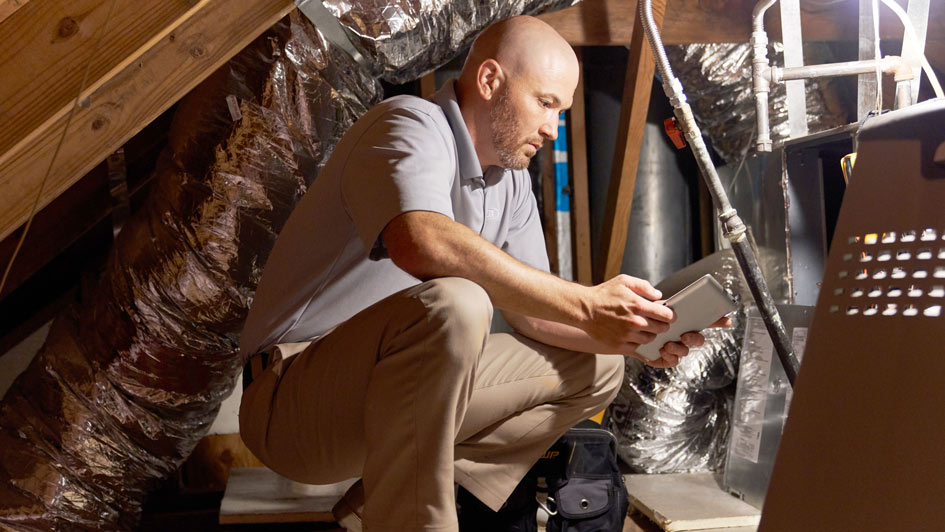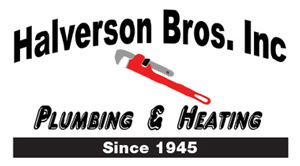
Did you know that more than 50% of your home’s energy costs are for your heating and cooling? This is why it’s critical to secure an energy-efficient HVAC system.
Furnace efficiency standards were last modified to an Annual Fuel Utilization Efficiency (AFUE) rating of 80% in 2015. This rating system measures how effective your furnace is at natural gas into heat. An AFUE rating of 80% means your furnace wastes about 20% of the fuel it uses while producing heat.
In 2022, President Biden devised new energy-efficiency standards for residential gas furnaces that would substantially decrease emissions, save consumers money and promote sustainability.
These revised standards are estimated to:
- Save Americans $1.9 billion annually.
- Cut carbon emissions by 373 million metric tons and methane emissions by 5.1 million tons over the next 25 - 30 years, the equivalent of what 61 million homes emit yearly.
Starting in 2029, the proposed rule would require all new gas furnaces to feature AFUE ratings of 95%. This means furnaces would turn nearly 100% of the gas into usable heat.
With these facts in mind, you may be asking yourself "what happens to my existing furnace"? For the time being, next to nothing, as the proposed rule will not go into effect until 2029 at the earliest and does not affect furnaces that are already in use.
But if you need furnace replacement in soon, highly energy-efficient furnaces are ready and available. Learn how these furnaces can lower your monthly energy bills.
Guide to Condensing Furnaces
How Condensing Furnaces Work
A condensing furnace is a style of heating system that uses a secondary heat exchanger to collect wasted heat from the furnace's exhaust gases. This decreases the extent of energy wasted, enhances energy efficiency and lowers CO2 emissions. It also requires less natural gas to create the same volume of heat compared to other types of furnaces.
How Condensing Furnaces Differ from Non-Condensing Furnaces
The primary difference between a condensing furnace and a non-condensing furnace is that the former uses a secondary heat exchanger to capture any wasted heat from its exhaust gases, while the other does not.
How Long Condensing Furnaces Last
The life span of a condensing furnace is dependent on the brand, model and other factors. In most cases, a condensing furnace should last between 10-20 years with proper maintenance and regular service. If your heating system doesn’t have regular furnace maintenance, the equipment may have a significantly shorter life span.
Why Condensing Furnaces Cost More
Usually, condensing furnaces type of system is much more efficient than conventional furnaces, as it only consumes the minimum amount of energy needed to heat your home, saving you money in the long run.
Most variable-speed furnaces are condensing furnaces, although a few are available in non-condensing models with lower AFUE ratings. If a manufacturer wants a furnace to be classified as a condensing furnace, it must offer an AFUE rating of 90% or higher.
Do Variable-Speed Furnaces Run Nonstop?
A variable-speed furnace doesn’t need to stay on all the time. Instead, it runs at different speeds based on the temperature in your Menomonie and western Wisconsin home as well as the amount of energy it uses to sustain that temperature.
When sufficient energy is demanded to maintain your preferred temperature level, the furnace will shift to a higher speed to manage the higher demand. Precise fan speeds offer more efficient heating in your home while also providing quieter operation.
Guide to Two-Stage Furnaces
Two-Stage Furnaces: What They Are and How They Work
A two-stage furnace is a type of heating system that utilizes two different stages of operation — high and low. During the low stage, the furnace operates at a reduced capacity as a way to maintain the desired temperature for your home more efficiently. During the high stage, the furnace will instead function at peak capacity to satisfy demands for increased heat. With a two-stage furnace, you can enjoy improved energy efficiency and comfortable temperatures all across your home.
While two-stage furnaces are highly efficient, not all all models are condensing furnaces.
Does a Two-Stage Furnace Run All the Time?
A two-stage furnace does not stay on indefinitely. In the low stage of operation, the furnace performs at reduced capacity in order to retain a planned temperature more efficiently within your home. When a greater demand for energy is needed to sustain the set temperature, the furnace shifts to its high stage and runs at full capacity. As a result, two-stage furnaces are proven to help reduce energy costs without operating around the clock.
Comparing Two-Stage and Variable-Speed Furnaces
Two-stage furnaces have two stages of functionality, low and high. During the low stage, the furnace works at reduced capacity in order to maintain a desired temperature within your home. When additional warmth or cooling is needed, the furnace will shift to its high stage and operate at full capacity.
Variable-speed furnaces, meanwhile, can operate at a variety of speeds in order to maintain a desired temperature more consistently at home. As such, variable-speed furnaces offer greater savings on your utility bills .
Differences Between One- and Two-Stage Furnaces
One-stage furnaces have a single stage of operation and operate either at full power or not at all. As a result, the furnace is always running in order to maintain a desired comfort level at home.
Two-stage furnaces, on the other hand, have two stages of operation, low and high. While in the low stage, the furnace runs at lower capacity in order to maintain the desired temperature more efficiently. When additional warmth or cooling is needed, the furnace will shift to its high stage and operate at maximum capacity.
Schedule Your Furnace Installation with Halverson Brothers Inc Today
Modern furnace technology can be confusing. That’s why Halverson Brothers Inc specialists are here to help with a free, no-pressure quote for furnace installation. We’ll assess your home, your heating needs and your budget before helping you find the best solution. Get in touch with us at 715-352-4052 to get started today!






